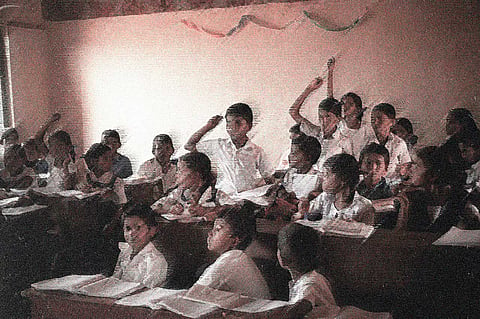

A study conducted across 441 schools by the Tamil Nadu Untouchability Eradication Front (TNUEF) has revealed that caste-based violence and discrimination among students remain widely prevalent in a significant number of schools in the state. The study, released on Saturday, December 23, also identified schools where teachers have propagated caste-based discrimination. While the names of the schools and teachers were not revealed to the media, the TNUEF says they have furnished those details to the state government along with recommendations, seeking prompt action.
A total of 321 government schools, 58 government aided schools, and 62 private schools across 36 districts were covered under the study. Up to 644 students – 333 boys and 311 girls – from Classes 6 to 12 participated in the survey. “A majority of the students who were willing to participate in the study belonged to Scheduled Castes (SC), while there were around 10% of students who were from Backward Castes (BC) and Most Backward Classes (MBC),” said Samuvel Raj, general secretary of TNUEF.
According to the study, caste violence among students have been reported in 25 schools from districts including Ramanathapuram, Cuddalore, and Tiruvannamalai among others. In at least 23 schools, students were found to actively express casteist sentiments, while in 10 schools, students formed separate groups based on their castes. In 20 districts including Chennai, Cuddalore and Tirunelveli, students use particular colours of kerchiefs, bindis, threads, and stickers to indicate their caste. The study has identified 34 other types of such caste-symbolic indications used by school-going children.
Dalit students are made to wash the school’s toilets in 15 schools, while in six schools, students are encouraged to stand in separate lines based on their respective castes to receive their mid-day meals. In four schools, rooms to eat lunch in have been segregated based on caste.
The study also revealed that caste-based discrimination prevails among teachers in at least three schools. In five schools, teachers actively propagate caste-based discrimination in classrooms. Teachers in one school were found to have refused to touch Dalit students, while in three schools, they excessively punished Dalit students. “In Madurai, a school cancelled the felicitation function for Class 12 toppers because the first and second rank holders were both Dalits,” said Samuvel.
TNUEF has also released 23 recommendations to the government to counter these issues. They recommend that a separate redressal system like the Internal Complaints Committee to address casteism should be established in schools across the state, with a civil service officer heading the administration. They have asked the government to take steps and establish committees with parents, students and teachers, to raise complaints and have suggested the stationing of complaint boxes to this effect. The recommendations also suggest that teachers’ training programmes should focus on the necessity of taking an egalitarian approach, in addition to educating them regarding the repercussions of discriminatory practices.
Samuvel also warned that if the state government doesn’t take proactive measures to control the trend of caste-based discrimination in schools within the next month, the organisation will reveal the names of the schools and the teachers to the media.